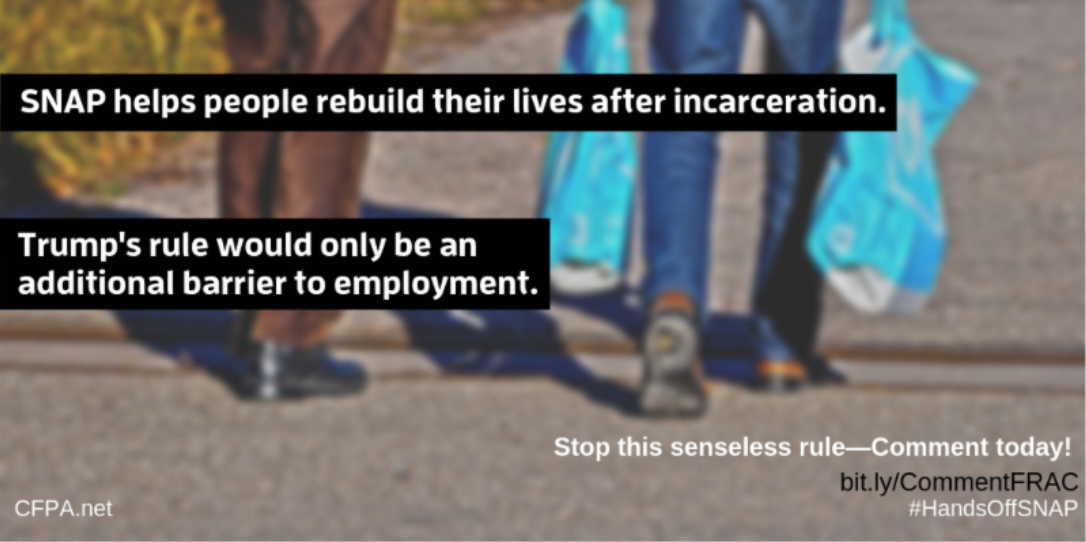One in five Californians are living with a past criminal conviction, 76 percent of whom have experienced barriers to success (trouble securing housing, employment, and access to education). The barriers are even higher for people of color and those just returning to their communities following a period of incarceration. The challenges of life after conviction place people at high-risk for food insecurity–just as unemployment, housing insecurity, and limited access to education place people at high-risk for criminal justice involvement.
SNAP/CalFresh provides some needed stability for those struggling to overcome their past convictions. The USDA proposal to eliminate the flexibility states have to waive SNAP time limits would only increase hardship and further widen the opportunity gap for people with criminal records.
During any historical period, the unemployment rate for formerly incarcerated people was, on average, 27 percent higher than the national rate. Chances of securing employment are even lower for those who are Black or Hispanic–especially women–with criminal histories. This and other challenges faced during reentry factor into whether a person is likely to return to prison.
The bottom line is: when people have their basic needs met, they are less likely to reoffend. According to one study that compared recidivism rates between states with and without bans on SNAP for people with drug felony convictions, being fully eligible for SNAP at time of release made people 13 percent less likely to return to prison within one year.
Keeping people connected to food assistance ensures that one of their most basic needs is met. This is significant for people who turn to SNAP for help when past convictions are impeding their progress toward a brighter future.
We must fight to protect SNAP as a valuable and effective tool for rebuilding lives after criminal justice involvement.
Maintaining state flexibility to exempt vulnerable adults facing structural barriers to employment is essential to making the SNAP program responsive to people’s economic realities. This proposal is an unwise expansion of a harsh, unfair, and counterproductive policy.
Act now to stop this harmful regulation!
No one should be penalized for lack of opportunity. Here’s how you can help stop this proposal from becoming law:
Submit a comment in opposition to the rule!
Download our template comments here.
Submit your comments here by April 2nd, 2019.
Spread the word!
After adding your comment on the rule, encourage at least two people in your network to do the same. Every comment matters!
Share this tweet to get the word out!
SNAP provides some needed stability for those confronting the challenges of life after criminal justice involvement. USDA’s proposed rule would only increase hardship and further widen the opportunity gap for people with criminal records. http://bit.ly/CommentFRAC #HandsOffSNAP
Questions? Contact: Jared Call at 213.482.8200 ext 201





